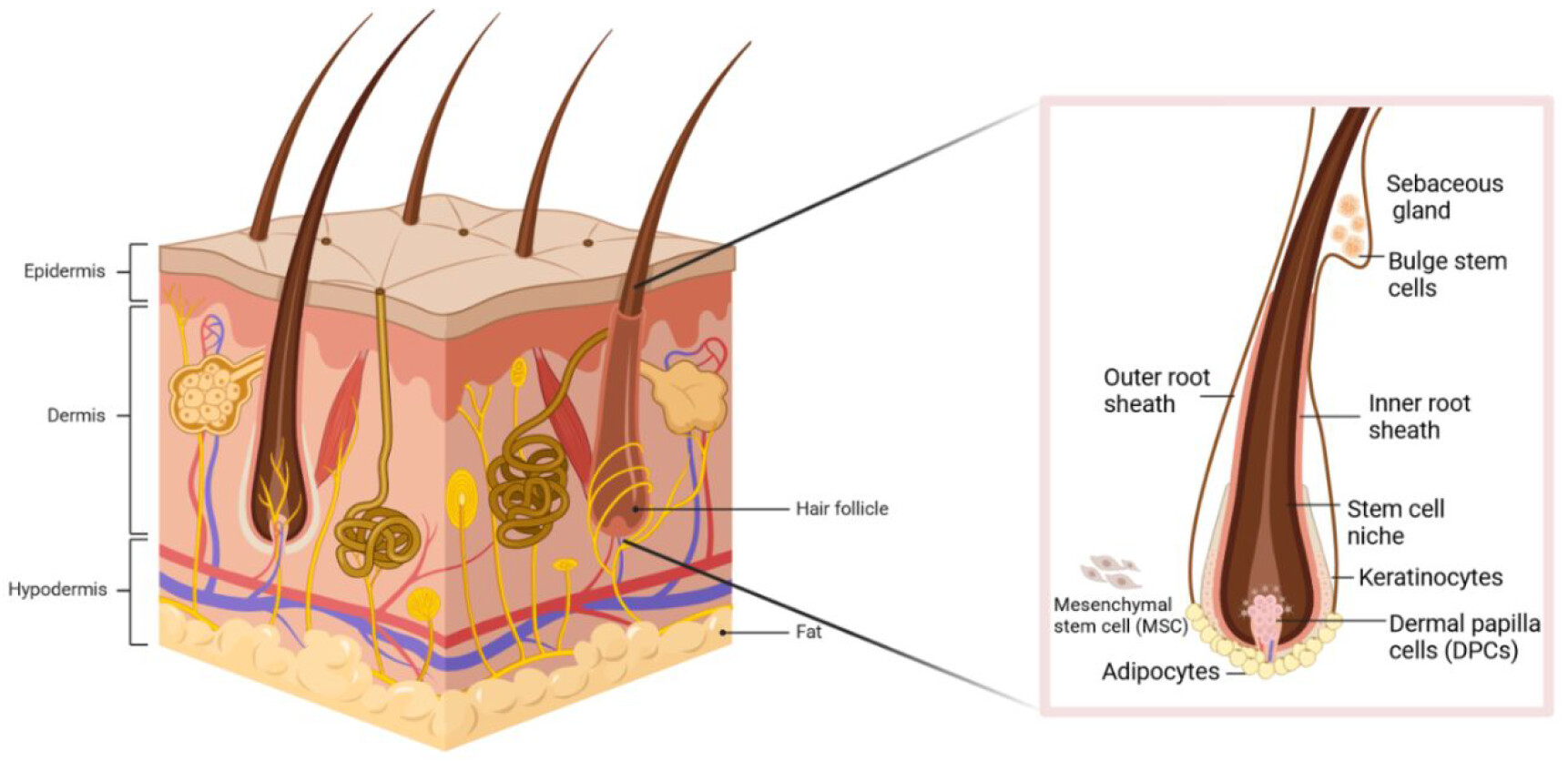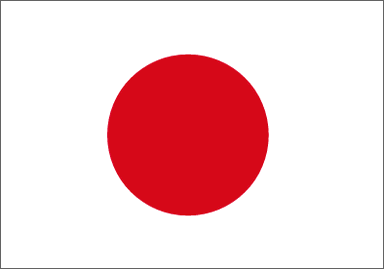Why are more and more young people losing their hair?
2024-01-22

Speaking of hair loss, let's start by discussing a rather obscure and seemingly insignificant organ in the human body—the "hair follicle."
Despite its small size, the hair follicle is a complete organ. It resides in the dermal papilla layer, with the hair root surrounded by inner and outer sheaths, forming a pocket-like structure called the follicle. The follicle is a sac-like tissue surrounding the base of the hair, consisting of an inner layer (epithelial tissue follicle) connected to the epidermis and an outer layer (connective tissue follicle) connected to the dermis.
In general, humans cannot grow new hair follicles. All follicles are present at birth and accompany a person throughout their life. Once a follicle dies, it cannot regenerate. Each follicle is a limited edition accessory.
All human hair, including head hair, body hair, and armpit hair, grows from these follicles. As mentioned earlier, the hair follicle is an extremely delicate organ, housing a hair papilla. Continuous division of the cells in the hair papilla allows hair to grow, with follicle cells obtaining nutrients from the bloodstream through fine blood vessels to support hair growth.
When issues arise with the follicular organ, such as the hair papilla's inability to divide normally or follicular atrophy due to insufficient nutrient intake, hair may fall out. In severe cases, continued follicular shrinkage prevents hair regrowth, leading to baldness.
The follicular organ itself is weak and vulnerable, easily influenced by both internal and external factors. One such factor is the body's automatic secretion of a hormone called testosterone, belonging to the group of sex hormones produced by both men and women. If this hormone is excessively secreted, surplus hormones can, under the influence of reductase enzymes, give rise to a new compound called dihydrotestosterone (DHT). DHT becomes an adversary to the hair follicle, impacting its normal growth and causing follicular shrinkage. For friends experiencing hair loss, especially due to conditions like seborrheic alopecia or androgenetic alopecia, the culprit is often the presence of excessive DHT in the body.
DHT plays a crucial role in maintaining the normal functioning of the reproductive system. Compared to testosterone, DHT is more active and has a greater impact on maintaining reproductive system functionality. However, the downside of elevated DHT levels is the acceleration of follicle maturation, leading to premature shedding and subsequent hair loss.
DHT is a derivative of testosterone, and the question arises: under what circumstances does testosterone convert into DHT in large quantities? The answer lies in the degeneration of the reproductive system. When the reproductive system undergoes degeneration and weakening, the initially small amount of DHT becomes insufficient to maintain normal reproductive system function. As a compensatory response, the body produces more DHT to sustain the weakening reproductive system. However, the excess DHT, while maintaining normal reproductive function, also produces side effects: prostate enlargement, sebaceous gland proliferation, and seborrheic alopecia.
Therefore, it's evident that the body does not spontaneously generate large amounts of DHT without cause. The overproduction of DHT is a compensatory reaction to the degeneration of the reproductive system. What leads to the degeneration of the reproductive system?
Quite clearly, it is excessive indulgence! So, the logic here is straightforward: excessive indulgence leads to the accumulation of fatigue in the reproductive system, causing a long-term weakening of reproductive system capabilities. To maintain the normal functioning of the reproductive system, the body compensatorily produces excessive DHT. Excessive DHT leads to prostate inflammation and seborrheic alopecia.
Friends experiencing hair loss, are you regretting your past actions? The harmful notion that masturbation is harmless!
Therefore, treating hair loss is a systematic endeavor. It's not merely about abstaining from excessive indulgence; that's just the necessary condition. On the foundation of abstaining from excessive indulgence, gradual restoration of the true health of the reproductive system is essential. Without comprehensive bodily health, discussing reproductive system health is futile. Thus, it becomes apparent that the process of treating hair loss should be a holistic journey towards restoring overall bodily health. The foundation of this process is, first and foremost, abstaining from excessive indulgence, allowing the reproductive system to rest and recover.
Upon reaching this point, some may feel dissatisfied, thinking, "I don't have the habit of masturbation, so how can I experience hair loss?" Besides the previously mentioned scenario, there are several other factors:
-
High Mental Stress Leading to Endocrine Imbalance:
- The pressure of buying a house and the stress of a 996 work schedule are significant contributors. However, even decades ago, our parents faced pressures like farming to support their families, and many times, they struggled to put food on the table. Different eras come with different pressures, and each generation bears its own burdens. Despite the pressures our parents faced, they did not experience early hair loss to the extent seen today.
-
Societal Development and Lifestyle Changes:
- With societal progress and technological advancements, the "mobile phone" has become an indispensable tool for modern individuals. How much time is truly devoted to connecting with family and friends? Even if pressured by a 996 lifestyle, many individuals won't readily go to bed by 9 o'clock. Among my friends, those who sleep before midnight are few. Given such a lifestyle, considering only hair loss seems like a rather lenient consequence. Many people suffer premature baldness without a family history of hair loss, and this is significantly related.
-
Irregular Diet Leading to Poor Physical Health and Inadequate Nutrient Supply for Hair Growth:
- Nowadays, many people are focused on weight loss. Some have tried cutting carbohydrates, a practice known to be unhealthy for the body. If you don't feed the cow grass, you can't expect it to work. Consider not only fasting during weight loss but also staying awake at night, going out for late-night snacks, smoking, drinking, indulging in excessive eating, and consuming greasy and hot foods (fatty meat, fried foods). Excessive intake of such foods promotes sebum secretion. If you're not going bald, it's truly surprising!
-
Physical and Chemical Hair Loss:
- The desire for beauty is inherent in everyone. People want to present themselves attractively and capture the attention of the opposite sex. Nowadays, people excessively engage in hair styling, including "bad boy foil perm" and "big wavy hair for girls." Even more concerning is hair dyeing. The scalp is in pain during the dyeing process, and just thinking about it indicates the disaster that the hair follicles endure.
-
Diseases:
- Another factor is diseases, and there's nothing to say about this, for example, chemotherapy and radiotherapy.
After saying so much, the main message is for you to understand that the cause of hair loss
More information
Jiabikang Health Research Institute will participate in the Palexpo Switzerland Geneva Exhibition in May 2024
Learn more
 English
English 简体中文
简体中文 Spanish
Spanish French
French German
German Portuguese
Portuguese Russian
Russian Arabic
Arabic Japanese
Japanese Korean
Korean Italian
Italian Malay
Malay Thai
Thai Hindi
Hindi Vietnamese
Vietnamese Polish
Polish Finnish
Finnish Dutch
Dutch Czech
Czech Lithuanian
Lithuanian Norwegian
Norwegian Indonesian
Indonesian
 Top
Top
 E-mail
E-mail
 whatsapp
whatsapp



